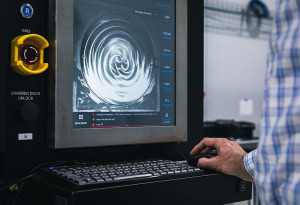COVID-19 truck blockade in Canada leads to auto plant shutdowns
The blocked bridge carries 25% of all trade between the two countries, and Canadian authorities expressed increasing worry about the economic effects.
The blocked bridge carries 25% of all trade between the two countries, and Canadian authorities expressed increasing worry about the economic effects.

Cummins announced Wednesday that it’s signed an agreement to purchase Connecticut-based Jacobs Vehicle Systems from its current owner for $325 million. The deal is expected to close later this year.
Democrats muscled through legislation in the House on Friday that they say positions the United States to better compete with China economically and on the global stage
Prosecutors say the Ohio man, who formerly worked for Cummins in Michigan, stole profit-sharing money that was supposed to have been distributed to company employees.
While the December performance still reflected strength in manufacturing, there were concerns that the current global surge in COVID-19 cases, largely the highly infectious omicron variant, could further depress manufacturing in coming months.
Orano Med LLC says the facility will be used to manufacture and distribute radiopharmaceuticals to treat cancer at hospitals throughout the country.

A growing number of Hoosier companies say advanced technology is improving productivity and profits, but that choosing and implementing the right tech can be challenging.
In a survey of business conditions, the Fed’s 12 regional banks found that the economy continued to grow at a modest-to-moderate pace. But because of supply chain problems, price increases were reported to be widespread across the economy.
Allegion says it had such success with its first investment fund, which launched in 2018, that it’s now starting a second fund that’s twice the size of the original.
The rejected contract offer would have covered more than 10,000 Deere workers at 12 facilities who make the company’s iconic John Deere green tractors and other equipment.
Figures compiled by the RV Industry Association show factories shipped about 55,000 units during September, setting a record for most shipments in a single month and a 32% increase from September 2020.
The global computer chip shortage cut into third-quarter profits at both Ford and crosstown rival General Motors, with both companies having to temporarily close factories, pinching supplies on dealer lots.
The slowdown has been attributed to a surge in cases from the delta variant over the summer and supply chain problems, which disrupted manufacturing output in many sectors, especially auto production and helped send consumer prices rising at the fastest pace in 13 years.

Indianapolis-based Allison, which recently formed a partnership with Beijing-based Jing-Jin Electric, announced Wednesday that it will participate in Jing-Jin’s upcoming initial public offering.
The company also teased upcoming new electric vehicles including a Chevrolet small SUV that will cost around $30,000, as well as electric trucks from Chevrolet and GMC, SUVs from Buick, and luxury vehicles from Cadillac.
The company, recently formed to consolidate several prominent athletic gear brands, plans to invest nearly $19 million in the new facility. The state has pledged $5 million in economic development incentives.
Shortages and price spikes are now cutting into one of the humblest yet most vital links in the global manufacturing supply chain: The plastic pellets that go into a vast universe of products ranging from cereal bags to medical devices, automotive interiors to bicycle helmets.
Production has started on a new car model at Honda’s factory in southeastern Indiana. Honda executives, workers and several state officials marked the start of mass production for the 2022 Civic Hatchback at the Greensburg plant during a ceremony this past week. The new Civic Hatchback becomes the third type of vehicle produced at the […]
The factory is expected to ultimately employ about 340 people and produce about 3.6 billion cans per year.

The contract to supply new engines for the B-52 bomber fleet could be worth up to $2.6 billion. It’s one of the largest contracts that Rolls’ Indianapolis operation has ever pursued.